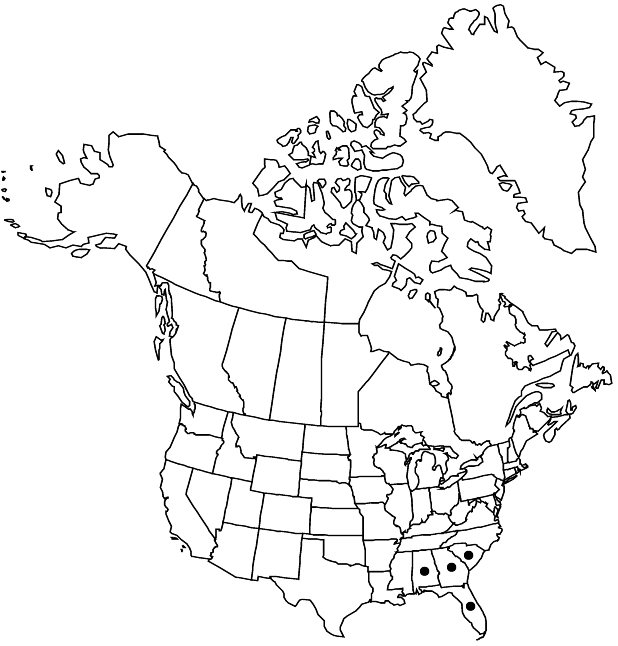Gaylussacia tomentosa
Bull. Torrey Bot. Club 24: 443. 1897 ,.
Plants 7.5–20 dm, forming small to extensive colonies (by rhizomes); branches spreading; twigs of current season pale green, densely hairy, sessile-glandular. Leaves: petiole 2–3 mm; blade greenish white, glaucescent abaxially, dull green to yellowish green adaxially, ovate to oblong, 2.5–6 × 2–3 cm, subcoriaceous, base cuneate, margins entire, apex rounded to obtuse, surfaces densely short-hairy (longer hairs to ca. 0.2 mm), sessile-glandular abaxially. Inflorescences drooping, 2–4-flowered, sometimes flowers solitary, bracteate, 1–2.5 cm, glabrous or pilose, sessile-glandular; bracts early-deciduous, leaflike, 5–6 mm, shorter than pedicels, densely hairy. Pedicels 8–15(–20) mm, glabrous, sessile-glandular; bracteoles 1–2, 1–2.5 mm. Flowers: sepals 5, 1–1.2 mm, glabrous or sparsely hairy, sessile-glandular; petals 5, corolla greenish white, campanulate-conic, 3–5 mm, lobes deltate, ca. 1 mm; filaments 0.5–1 mm, ciliate; anthers included (tips barely exserted), 2.5 mm, thecae not divergent distally; ovary glabrous. Drupes juicy, sweet, dark blue, sometimes black, rarely white, glaucous, 5–8 mm diam., glabrous. Seeds 1.5 mm.
Phenology: Flowering late spring.
Habitat: Moist to wet pine flatwoods and savannas, margins of cypress-gum depressions, margins of blackwater floodplains, streamhead ecotones, sometimes in dry soils
Elevation: 0-100 m
Distribution

Ala., Fla., Ga., S.C.
Discussion
Gaylussacia tomentosa is a coastal plain endemic that replaces G. frondosa from South Carolina south-ward. The leaves and twigs are covered with dense, tawny hairs, unlike the relatively sparse, white hairs of G. frondosa.
Selected References
None.